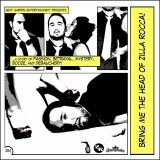51 Birch Street
“What we learn, we learn a lot too late,” Mike Block says near the tail-end of his son’s documentary, 51 Birch Street. He has a wistful, inscrutable look inscribed on his face, his usual reaction to Doug’s prying interviews. Mike has thus far built his whole life around not asking questions, let alone answering them. But in the wake of his wife dying and his hasty remarriage three months later, everything is up for review once again. Long-dormant feelings are roiled up for reexamination; long-held assumptions get rewritten with startling new pieces of evidence. Products of the ’50s mindset, Mike and Minna Block projected a stability and security for all to see. He was the strong, athletic breadwinner; she was the doting housewife and mother of three. They were picture-perfect, with rooms of proud photographs to assert that fact. For fifty-four years, they seemed to embody the happy marriage, even to their grown kids. But like everything else, their relationship turns out to be far more complex and tenuous than they let on. As he’s about to move to Florida with his new bride Kitty, Mike opens up about his eighty-three-year life at last. Simultaneously, Doug discovers stacks and stacks of his mother’s diaries, soul-baring chronicles that effectively detail her entire adult life. As the layers unpeel, 51 Birch Street starts to hit all too close to home literally and figuratively. It's a searing work, encroaching on territories far more universal than just the Block house. Most of us don’t know our parents beyond the extents they reveal; many of us probably wouldn’t want to know much more. Doug pushes forward however, confronting whether Mike had carried on an affair with his secretary Kitty all these years. He also reads his mother’s innermost confessions, which reveal a likable woman very much of her age. In her writing, Minna records a Betty Friedan-style awakening and her desire for self-discovery, but also a long-dissatisfied woman with her own extramarital lusts. Through home videos, diary entries, photos and interviews with family members, friends and even Doug’s wife, Doug compiles fragment after fascinating fragment. Along the way, he confronts his own feelings about the findings, asking the same questions we as viewers are asking ourselves. That honesty in his approach is compelling, and his constant acknowledgment of his biases and allegiances is commendable. In a sense, this is unflinchable filmmaking, but just as much, its greatest interest is revealing the flinches, winces and pangs that come with unwanted knowledge. In these ways, 51 Birch Street follows in the tradition of other recent intense documentaries such as Andrew Jarecki’s Capturing the Friedmans (with David Friedman's mini-films within) and Steve James’ Stevie. By turning the lens on thorny subjects, the filmmakers are also exploring their own responses to the discoveries. They are commenting on documentary’s incredibly subjective nature by explicitly making their subjectivity a part of the work. But at its very core, 51 Birch Street is an examination of humans in human circumstances. It's foremost about the process of love aging and wrinkling, of relationships forging and inevitably fraying. It's about the unknowable nature of the people once closest to us, even when they're in the room down the hall or even the bed right beside us. The trailer 51 Birch Street is on DVD now. * MP3: "Father and Son" - Cat Stevens from Tea For The Tillerman [Buy it] * Website: 51 Birch Street |

























Comments on "51 Birch Street"
-
 Anonymous said ... (10:35 PM) :
Anonymous said ... (10:35 PM) :
post a commentThis movie was a fascinating, riveting portrait of a marriage that an audience perhaps had not been privy to before. Almost painful in its depiction of a relationship that while happy on the surface, was revealed to be deeply unhappy and dissatisfied at the core. There are probably a lot more marriages out there like the Block's than we think. The idea that one has long dormant feelings of wanting to feel alive are a universal desire. Four stars.